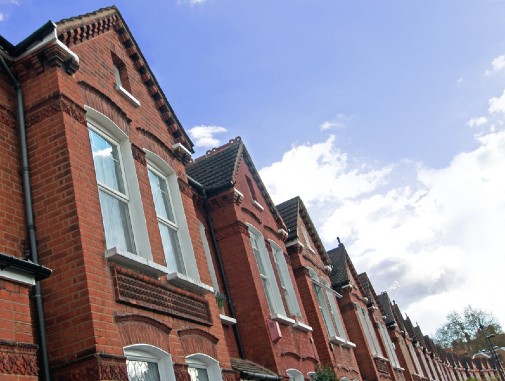A major new research project led by the University of York will investigate how air pollutants in homes can adversely affect the health of the people living in them.
Researchers have received £2.9 million from UK Research and Innovation (UKRI) to better understand how the composition, concentration and exposures of air pollutants affect people in their homes.
Born In Bradford
The project will focus on homes in the city of Bradford, which, like other parts of the UK is affected by poor air quality. Bradford also has a multi-ethnic population and is affected by high levels of deprivation.
A team made up of scientists from four universities will work with Bradford Teaching Hospital NHS Foundation Trust and the Born In Bradford cohort – a research programme following communities in the city – to better understand the potential impacts of poor indoor air quality on ill health.
Considering current and future trends, the team will quantify and identify:
the composition and concentrations of air pollutants within indoor spaces, such as those from cooking and cleaning;
how air pollutants react chemically and transform over time, including when different air pollutants mix;
how air pollutants from indoor air sources affect outdoor air quality and vice versa;
how different occupant behaviours affect production of and exposure to air pollutants, and how in turn this affects health outcomes and health inequalities.
Interventions
Professor Nicola Carlsaw, from the University of York’s Department of Environment and Geography, who is leading the study, said: “This study will investigate the causes of poor indoor air quality in UK homes in more detail than ever before.
“Studying the Born in Bradford cohort allows us to focus on the health impacts of poor air quality in deprived urban areas and compare them with more affluent areas. Through studying how occupant behaviour affects air pollution exposure indoors, we aim to design interventions that will lead to healthier buildings.”
The project is one of three new research projects which will investigate how air pollutants in indoor spaces such as homes, schools and workplaces can adversely affect the health of the people inhabiting them.
Researchers have received a share of £9 million funding from UK Research and Innovation to better understand the how the composition, concentration and exposures of air pollutants affect children with asthma and people living in urban homes.
Infrastructure
In a separate project, the University of York will collaborate in the construction of a national infrastructure to study adverse effects of air pollution exposure on human health.
The platform will enable studies of controlled exposures to current and future pollutants in our environment, facilitating understanding of their toxicology and health effects.
Initially, this capability will be used to investigate indicators of brain dysfunction after exposure to indoor and outdoor pollutants, with an aim to create a hazard ranking of sources of air pollution and their effects.
The project will give public health authorities the information required to enable targeted avoidance and control of the most hazardous sources of air pollution.
The project is being led by the University of Manchester.
Professor Jacqui Hamilton, from the Wolfson Atmospheric Chemistry Laboratories, will lead the York team.
She said: “This project will allow us to investigate the links between the chemical composition of different sources of air pollution and their impact on human health, focusing on the brain.
“At York, we will use advanced tools to characterise the complex mixture of chemicals emitted to the atmosphere and develop a new mobile aerosol source for toxicology studies.”
Specialists
The projects were funded by UKRI through the SPF Clean Air Programme. Each project will bring together specialists in environmental, social and medical, engineering, economic sciences, and health communities.
In the UK, poor air quality is a severe environmental risk to public health, with air pollution in the UK responsible for 40,000 early deaths. It is estimated to cost £20 billion a year to health services and businesses.
Professor Sir Duncan Wingham, Executive Chair of the Natural Environment Research Councils, part of UKRI, said: “Poor air quality affects millions of people in the UK, and this research will help us better understand how indoor spaces interact with pollutants, causing poor health.
“Air pollution is a key funding priority, and these studies are part of a multi-million-pound investment by UKRI in monitoring, reducing and mitigating the impact of pollutants on the planet and our health.”








